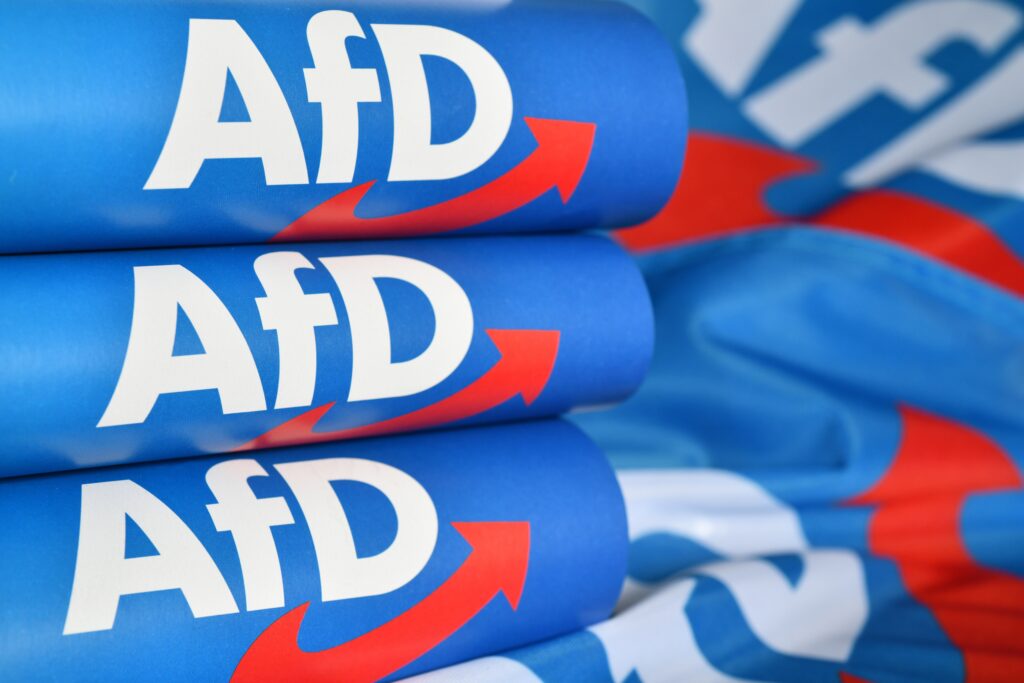Germany’s Foreign Office has responded strongly to recent remarks by U.S. officials, defending its decision to label the far-right Alternative für Deutschland (AfD) party as a right-wing extremist group. This response came after Vice President JD Vance and Secretary of State Marco Rubio accused Germany of returning to Cold War-style divisions and using “tyranny in disguise” by targeting the AfD. The German government has emphasized the importance of upholding democratic values by countering extremist ideologies that threaten societal inclusion.
Germany Responds to U.S. Criticism
Germany’s Foreign Office made a rare public statement to address the criticism from high-ranking U.S. officials. On the social media platform X, the Foreign Office stated, “We have learned from our history that right-wing extremism needs to be stopped.” The message was a clear defense of Germany’s position, rooted in the nation’s historical lessons on preventing extremism. The Foreign Office stressed that actions against ideologies promoting exclusion, particularly based on ancestry or ethnicity, are essential for preserving Germany’s democratic principles.
Intelligence Report Justifies Extremism Label
The Federal Office for the Protection of the Constitution (BfV) supports the government’s decision. According to the BfV, AfD’s ideology is one that encourages the exclusion of specific societal groups, particularly those from predominantly Muslim countries. Initially, this classification applied mainly to regions with strong AfD support, but after further review, the designation was expanded nationwide, citing the consistency of the party’s ideological threats across Germany.
AfD Leaders Reject Classification
AfD co-leaders Alice Weidel and Tino Chrupalla strongly opposed the classification, arguing it was politically motivated and a direct threat to democratic freedoms. Beatrix von Storch, deputy leader of the party, condemned the decision on an international broadcast, comparing the move to actions taken by authoritarian regimes. She warned that the classification was an attempt by the German government to silence political opposition and stifle dissent.
Heightened Surveillance of AfD Members
The designation of AfD as a right-wing extremist group grants German authorities the ability to take more intrusive measures, including phone tapping and deploying undercover operatives. The German government reiterated that these actions are aligned with democratic norms and follow a thorough, independent investigation. A statement from the Foreign Office on social media reinforced this stance: “This is democracy.”
U.S. Officials Draw Cold War Parallels
Vice President JD Vance, who recently met with AfD leader Alice Weidel in Munich, voiced his support for the party and criticized Germany for suppressing political opposition. He argued that modern Germany had “rebuilt the Berlin Wall” through its institutions, without the need for foreign intervention. Secretary of State Marco Rubio echoed this sentiment, warning that the German government’s actions resembled authoritarian tactics disguised as democratic safeguards.
Political Debates on Potential AfD Ban
As Germany prepares for a critical Bundestag vote to confirm Friedrich Merz as the new chancellor of a coalition government with the Social Democrats (SPD), discussions about a potential AfD ban have gained momentum. SPD leader Lars Klingbeil, who is set to become vice-chancellor and finance minister, acknowledged that while an immediate ban may not be on the table, the government must take the threat posed by the AfD seriously. He stated, “They want a different country, they want to destroy our democracy. And we must take that very seriously.”
Germany’s stance on the AfD continues to be a point of contention, both within its borders and internationally. As political tensions rise, both sides of the debate argue about the future of democracy and extremism in Europe. Germany’s commitment to countering right-wing extremism and maintaining democratic integrity will be tested as the AfD gains traction and global criticism mounts.


